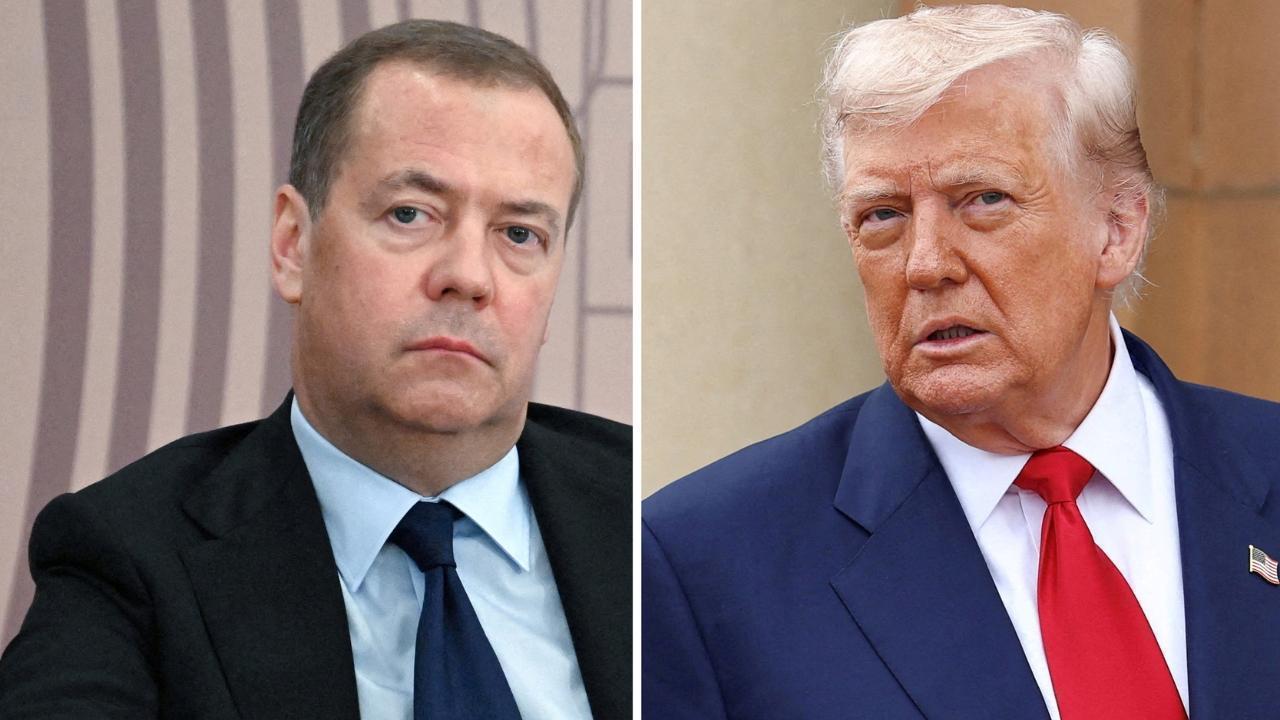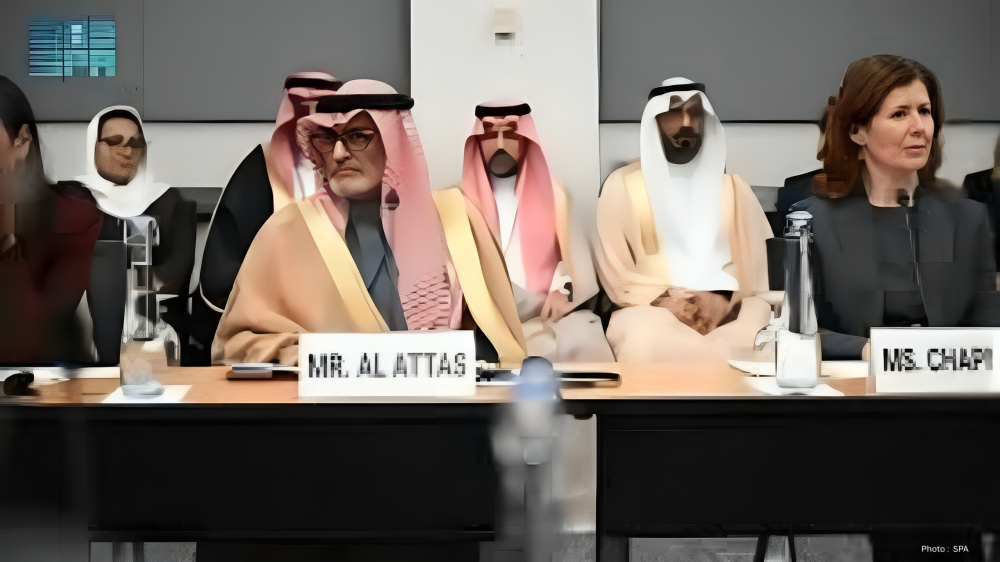
Post by : Priya
Photo:Reuters
In recent days, a significant development has taken place in the complex relationship between two global powers, the United States and Russia, as former U.S. President Donald Trump announced the repositioning of two U.S. nuclear submarines in response to certain statements made by Russian officials. The Kremlin, representing Russia’s government, has since urged caution in the use of nuclear rhetoric, emphasizing the need for careful communication to avoid escalating tensions that could have dire consequences for global security.
Background: Historical Context of U.S.-Russia Nuclear Relations
The United States and Russia have long been the world’s leading nuclear powers. Since the Cold War era, both nations developed vast arsenals of nuclear weapons, creating a delicate balance called "mutually assured destruction," which deterred the use of these weapons directly.
Despite the Cold War ending decades ago, the legacy continues. Both countries maintain large stockpiles of nuclear weapons and advanced delivery systems, including nuclear submarines, which are especially important due to their stealth and second-strike capabilities. Nuclear submarines can patrol undetected anywhere in the oceans, ready to launch missile strikes if necessary.
This power balance has always required careful diplomacy and strategic caution because any misstep can lead to catastrophic conflict. The current tensions between the U.S. and Russia must be viewed in this long historical framework, where nuclear weapons continue to play a central role in national security strategies.
The Recent Spark: Trump’s Announcement and Medvedev’s Provocative Statements
The immediate cause of the recent nuclear tensions was a war of words between Donald Trump and Dmitry Medvedev, a former Russian president and deputy chairman of Russia's Security Council. Medvedev made statements on social media perceived by many as threatening, warning of dangerous consequences if President Trump’s ultimatum regarding the Ukraine conflict was not met.
Trump responded by stating he had ordered two U.S. nuclear submarines to be repositioned "in the appropriate regions" as a precaution, stressing that words have great power and that reckless statements could lead to unintended consequences.
He framed his action as a measured response to what he described as "highly provocative" remarks from Medvedev, serving as a deterrent signal while expressing hope that escalation could be avoided.
While Trump did not disclose the exact locations or details about the submarines involved—standard practice due to military secrecy—the message itself heightened international alertness.
Why Nuclear Submarines Matter
Nuclear submarines are among the most feared elements of a country’s military arsenal. Because they are hidden underwater and can travel anywhere, they create uncertainty for an opponent, increasing deterrence. Their presence sends a signal that a country is ready to defend itself and can retaliate if attacked.
Trump's announcement was significant because any movement of such assets is closely watched globally. It suggests not just military readiness but also political resolve. This move, coming in the context of ongoing conflict in Ukraine and strained U.S.-Russia relations, carries strong symbolic weight.
The Kremlin’s Response: Call for Calm and Caution
After Trump’s announcement, the Kremlin responded carefully. Dmitry Peskov, the Kremlin spokesperson, acknowledged the repositioning but emphasized that U.S. nuclear submarines are always active and that such movements are not unusual.
More importantly, the Kremlin urged all parties to avoid aggressive nuclear rhetoric. They stressed that words around nuclear weapons carry immense weight and can unintentionally escalate situations. The Kremlin’s statement reflected a desire to stabilize the situation and prevent misunderstandings or miscalculations that could spiral into conflict.
Implications for Global Security and Diplomacy
The exchange highlights several critical issues in global security today:
Risks of Nuclear Rhetoric: The public statements and social media exchanges between high-level leaders illustrate how quickly words can raise fears of nuclear conflict. This underscores the importance of diplomatic language and measured communication.
Ongoing Ukraine Conflict: The war in Ukraine remains a major driver of tensions. Both the U.S. and Russia have vested interests and conflicting goals. The presence of nuclear weapons in this geopolitical struggle adds a dangerous dimension.
Importance of Diplomacy: The situation points to the urgency of renewed diplomatic efforts to reduce tensions, prevent escalation, and seek peaceful solutions.










Baaghi 4 starring Tiger Shroff now streams on Amazon Prime Video
Tiger Shroff’s Baaghi 4 hits Amazon Prime Video on a rental basis, bringing high-octane action and e

Dubai Basketball Club stuns Barcelona with historic 83-78 win
Dubai Basketball Club beats EuroLeague champs Barcelona 83-78 in historic debut at Coca-Cola Arena,

Lazio Denies Qatari Sale Rumors, Files Legal Complaints
Lazio refutes online claims of Qatari takeover talks, files reports with Italian regulators and judi

Penn State Fires Coach Franklin After Third Straight Loss
Penn State parts ways with James Franklin after 3 conference defeats, naming Terry Smith as interim

Denmark Beats Greece 3-1 to Stay Top in Qualifiers
Denmark wins 3-1 at home over Greece, keeps unbeaten record, and stays ahead of Scotland in Group C

Panthers Edge Cowboys 30-27 with Dowdle’s Big Game
Rico Dowdle dominates former team with 239 total yards as Panthers win 30-27 over Cowboys by last-se